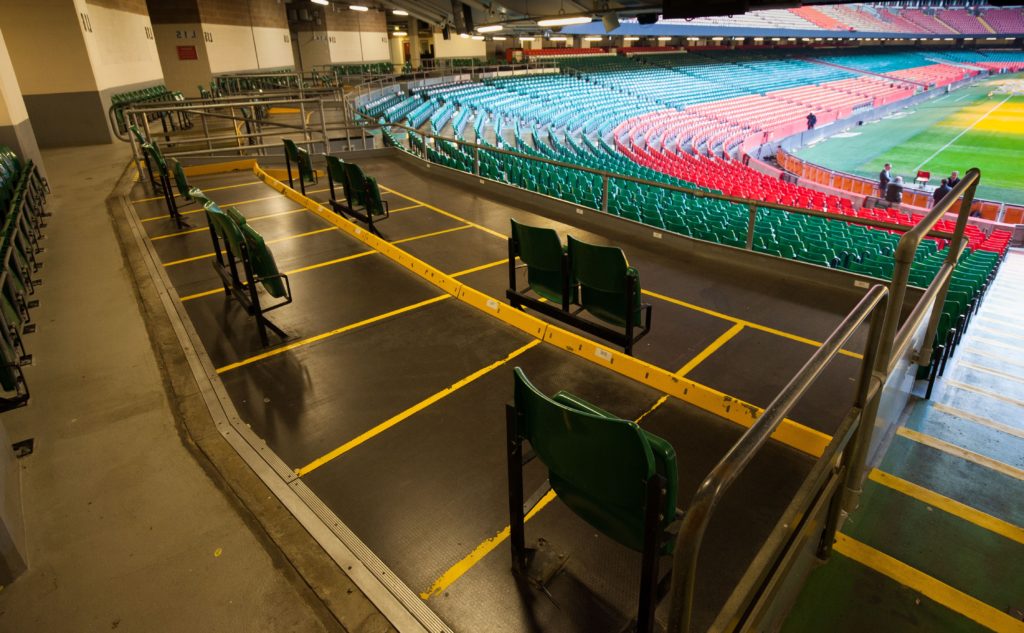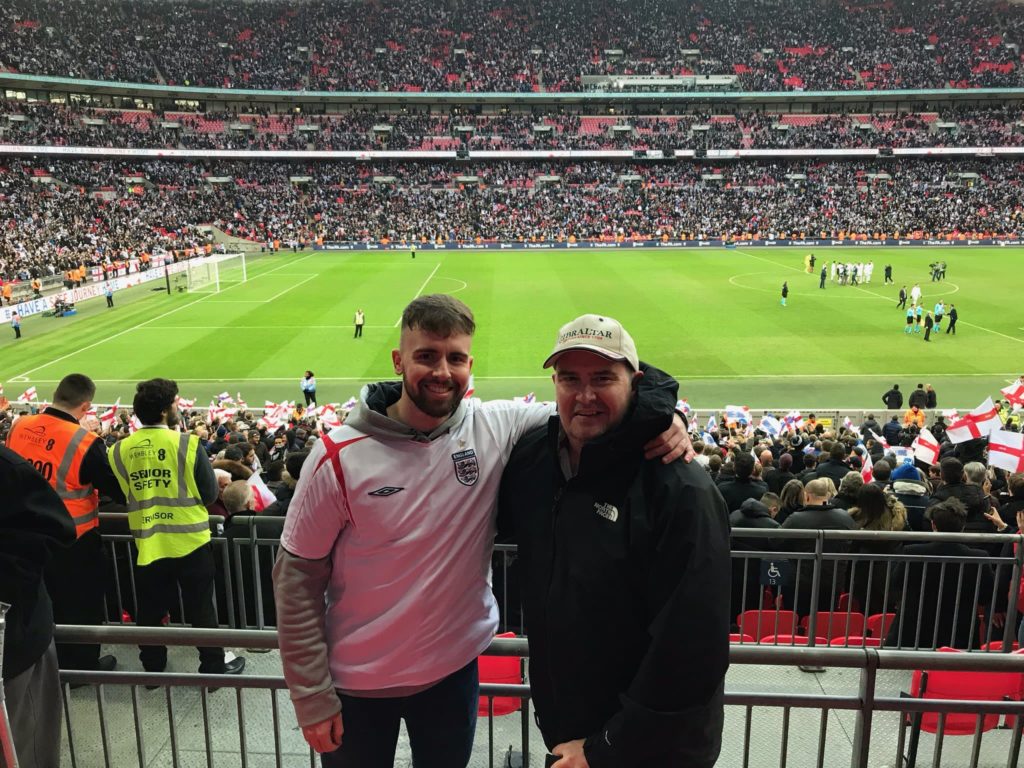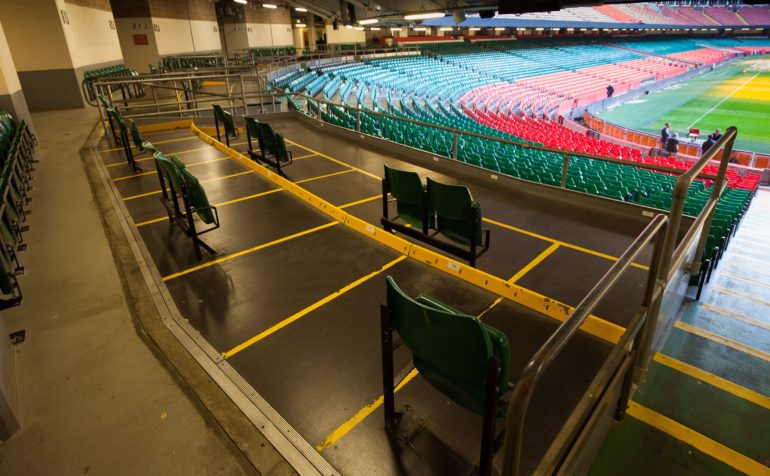THE Principality Stadium has expanded its disabled access seating, but wheelchair users and disability charities say getting around the city is still a problem.
The number of disabled access seats will now total 214 up from 168, (with 111 additional seats for carers) after the 30 percent increase according to the WRU.

Ruth Nortey, policy and research officer at Disability Wales, a leading mobility charity told The Cardiffian: “It’s a really good thing for fans going to games that there are these extra seats available.
“For disabled fans it’s always been a problem to try and get a seat considering there’s a very limited number, and to watch the national team you have to be at the front of the queue.”
The move will reduce regular seating by 500 and will cost £100,000. However, stadium manager Mark Williams said: “This is the right thing to do.”
He added: “Demand in this quarter has increased over the years and we have undertaken the work to increase wheelchair bays, ambulant disabled and carer seating to a level that surpasses current demand.
“In order to do so we have made significant up-front investment, but this will have a hugely positive effect on our long–term appeal to incoming event owners and to supporters from around the globe.”
Simon Green, chair of the Bridgend Coalition of Disabled People, is a wheelchair user. He told The Cardiffian: “I think the move to add more seats is a brilliant thing. I’m a big rugby fan and I go to watch Bridgend Ravens and Wales as much as I can.
“A number of Premiership rugby clubs don’t have great facilities for disabled fans, so their only real chance to watch live rugby is at the Principality.
“The seats are decided by a lottery and are cheaper than regular tickets at around £40 per person, but they are already in high demand. So, adding the extra seats will help other disabled fans watch live rugby”
Phil Eddy, who has vasculitis, an autoimmune disease and uses a walking stick or wheelchair due to numbness in his legs that having these seats is very important. “I had reservations about going to watch, when I saw England at Wembley, but I had a great time because of how good the facilities were.
“The access was all over the stadium and all the disabled seats had ramp access, plus carer seats and even attendants for food and drink.

“For disabled fans having these facilities at different stadiums allows you to go and watch your team, and I would have no problem going again.”
‘But getting around Cardiff is still a problem’
However, Mr Green said that while adding seats is a great move, match days can be an issue.
“I have to get the train for a four o’clock kick off at nine in the morning to arrive. The trains are too rammed if you try to get in at normal time and you’d get bumped and knocked.
“My friend who was recently paralysed can’t get the train or bus at all as being bumps could put her in hospital. If we go to the game together, we have to take a £90 disabled access taxi instead of a £10 train ticket, but that’s the cost of it,” he said.
Mr Green who is also a founding member of the Wales Diversity Awards, added: “Most people like to go to the pub after the game. But if you are in a wheelchair, so many bars and pubs only have step access which stops you from going in, so even celebrating a win can be a problem.”
Ms Nortey echoed this: “if you are in a wheelchair it is hard to get around the city. As well as the step only access, sometimes the taxi ranks, and bus stops are so far from the shops it’s quite hard for wheelchair users to access.”

14.02.19 - A general view of one of the newly expanded area for disabled supporters in the south stand of the Principality Stadium.


